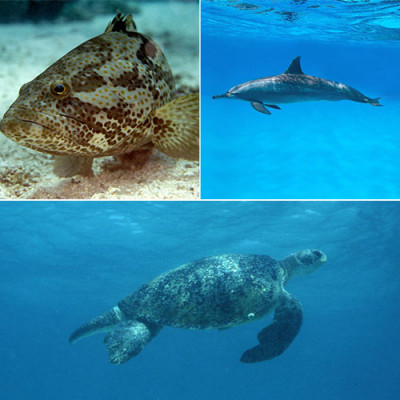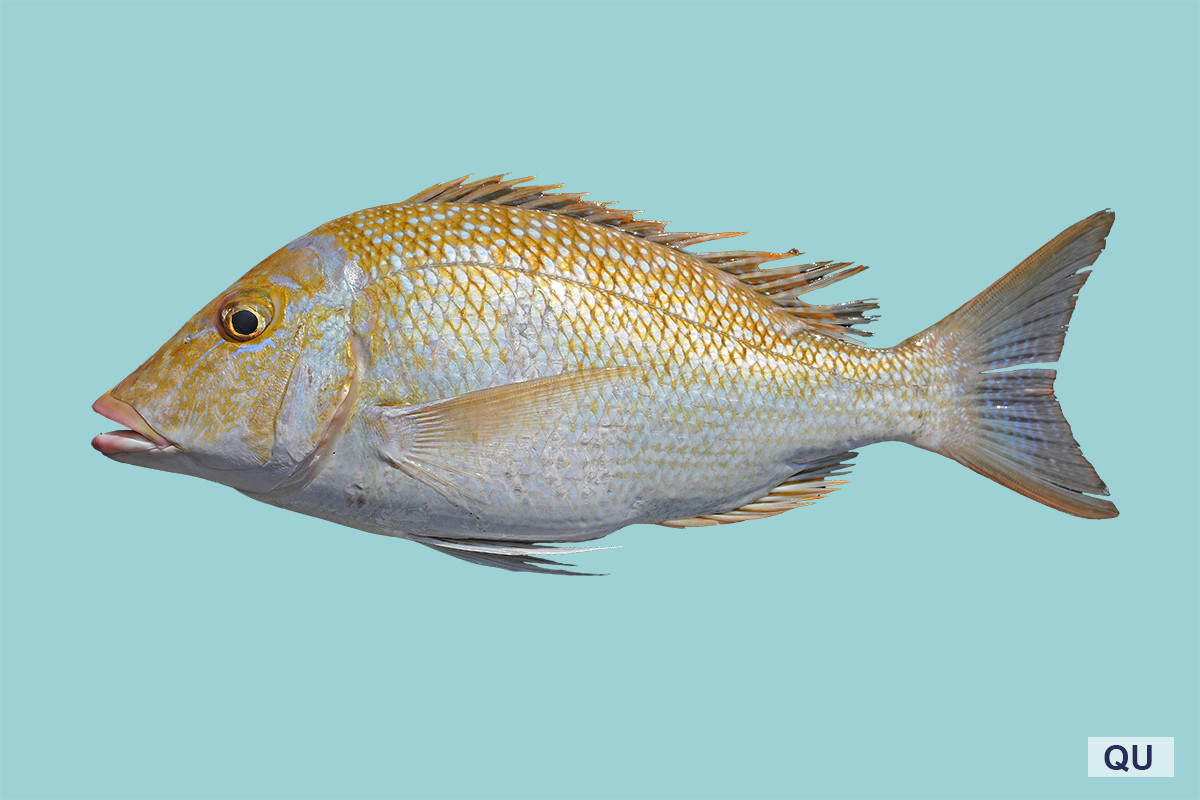Name: Spangled Emperor
Local name: Sheri
Scientific name: Lethrinus nebulosus
Classification: Class: ray-finned fishes; Order: perch-likes; Family: emperors (Lethrinidae)
Size: It commonly attains between 20 cm and 50 cm, with a maximum total length of 80 cm.
Habitat:
The Spangled Emperor occurs in a variety of habitats from coral assemblages to seagrass beds and mangroves, and is found from very shallow water to at least 75 m depth. It feeds mainly on small crabs, echinoderms, worms, mollusks, and larger zooplankton organisms.
Distribution:
This species is widespread in the tropical Indo-West Pacific, from the Red Sea and the east coast of Africa, east to Samoa, north to Japan, and south to Australia.
Conservation status:
It has not yet been assessed globally by the IUCN Red List of Threatened Species. In a recent regional assessment for the Arabian Gulf it was classified as Least Concern (LC). The Spangled Emperor is mainly caught by handlines and traps. It is a prized food fish, highly important to fisheries and very common in markets.
Description:
The body is oblong, relatively high and moderately compressed. The dorsal profile of the head is straight to slightly concave until above the eye, and convex further below. The snout is short, and the caudal fin is slightly forked. Body coloration is light greenish to yellowish brown or grey dorsally, grading to near-white ventrally, and scale edges are dark. Usually numerous scales on the dorsal half of the body have light blue spots. There is a vertically oval, pale blue spot at the origin of the lateral line, and the head often has light blue streaks or rows of spots, radiating from the eye towards the snout.








